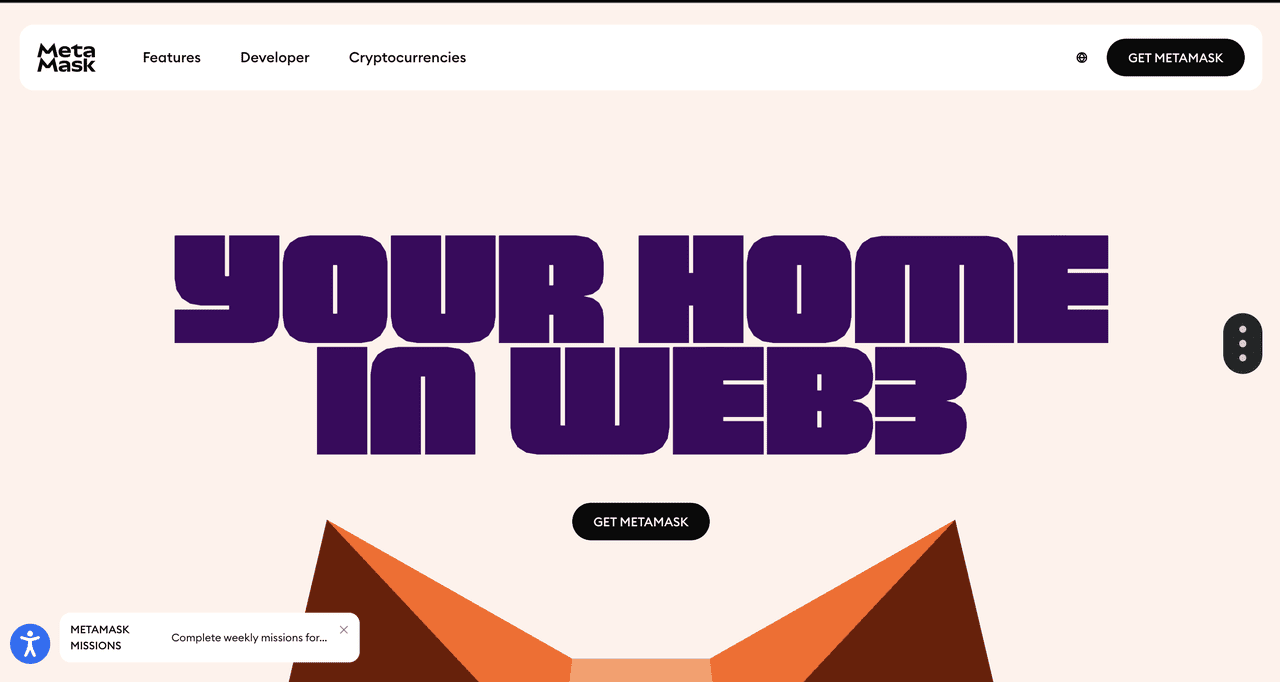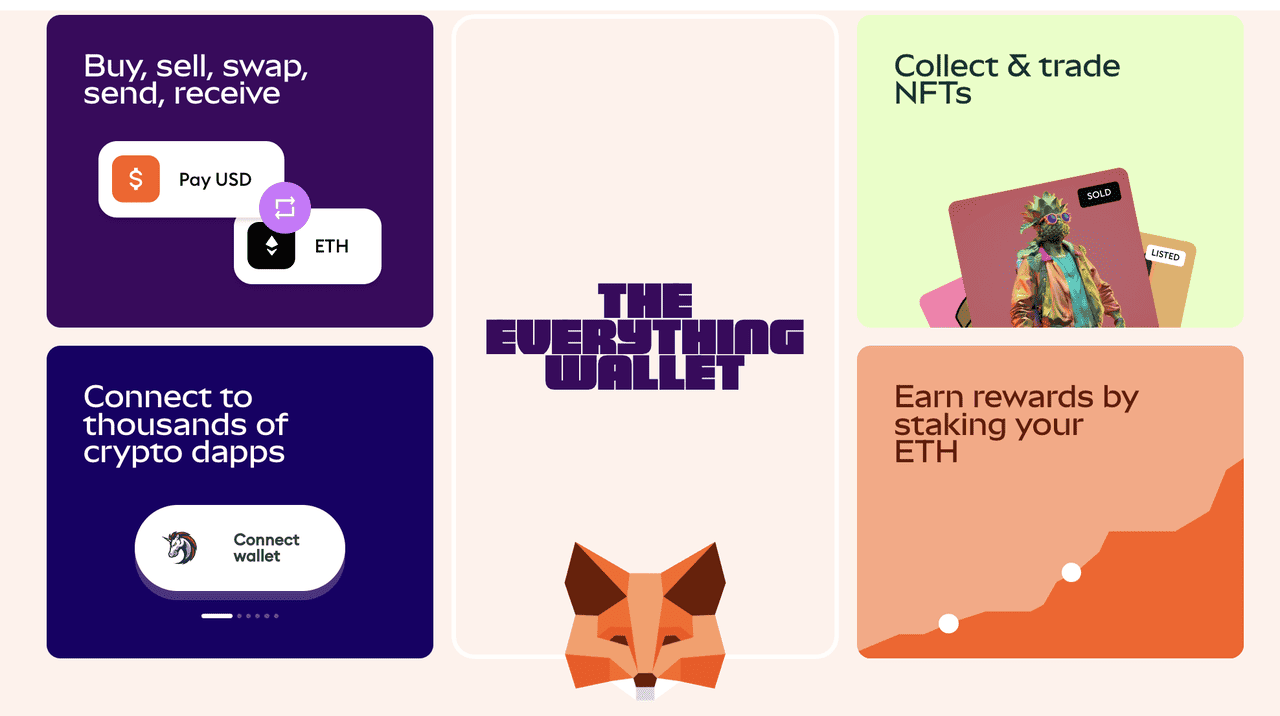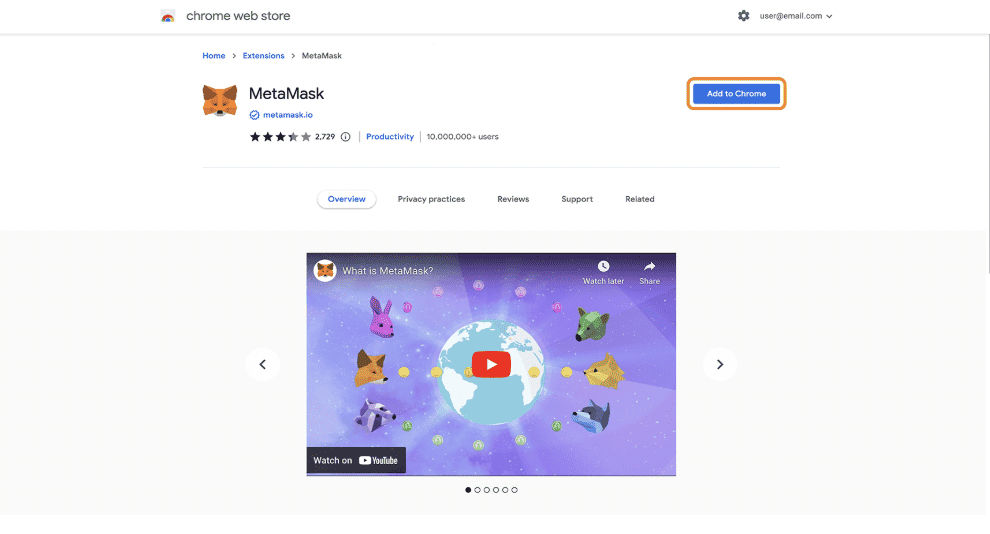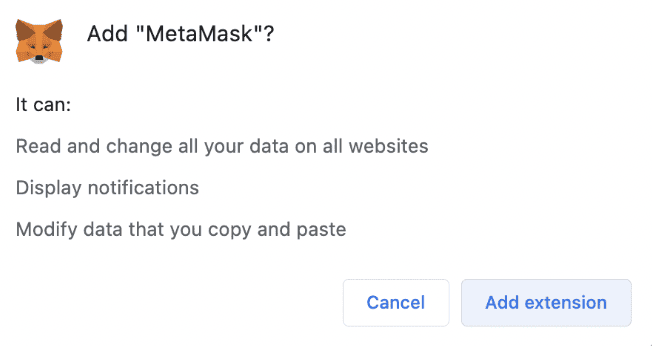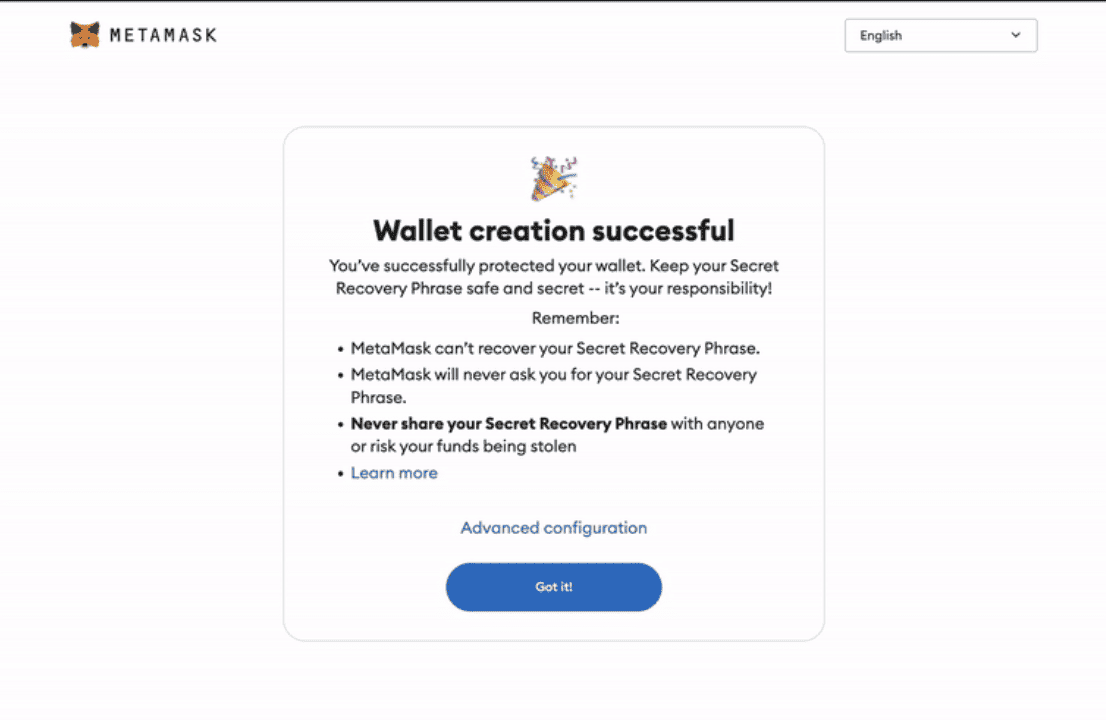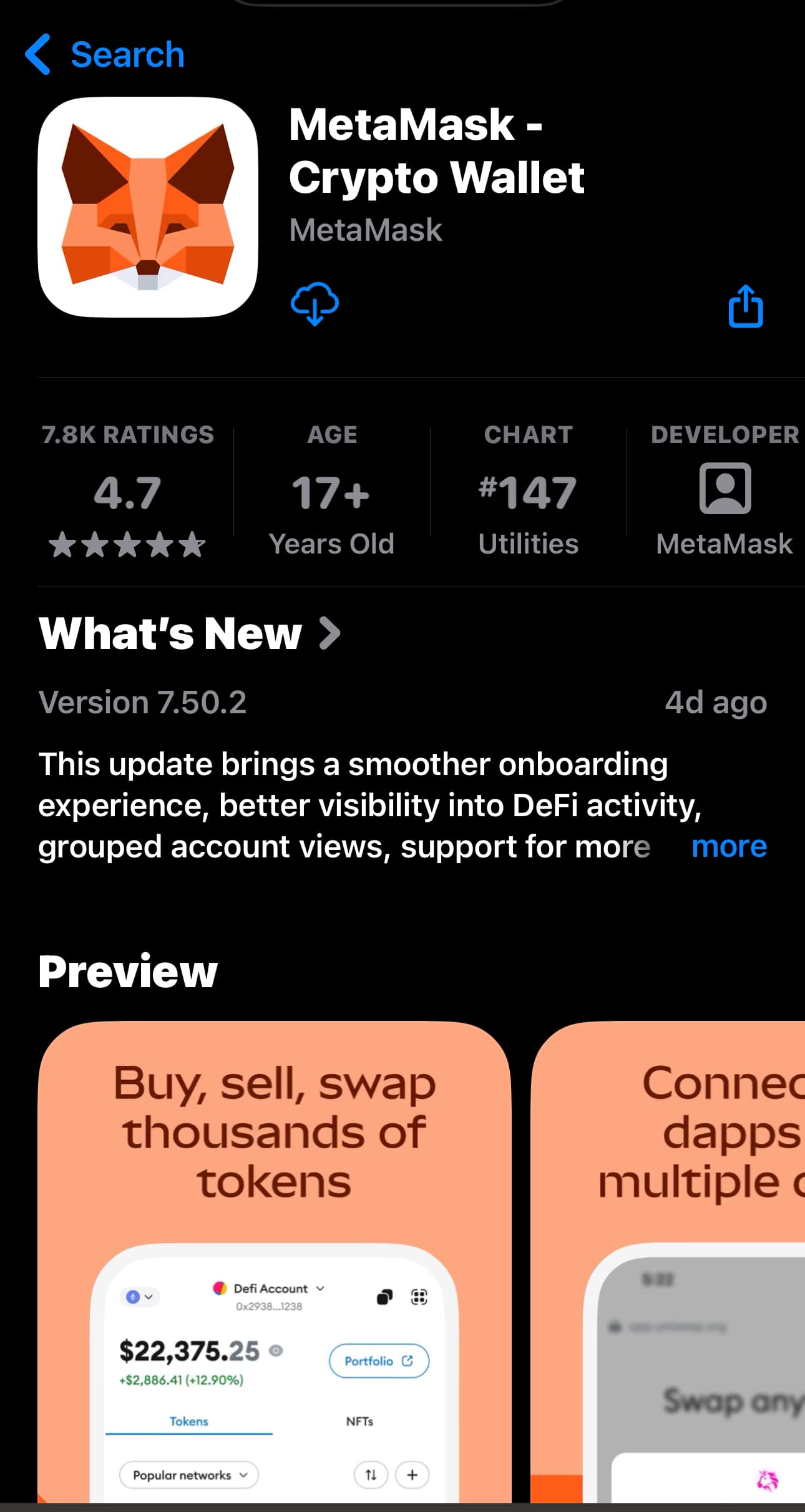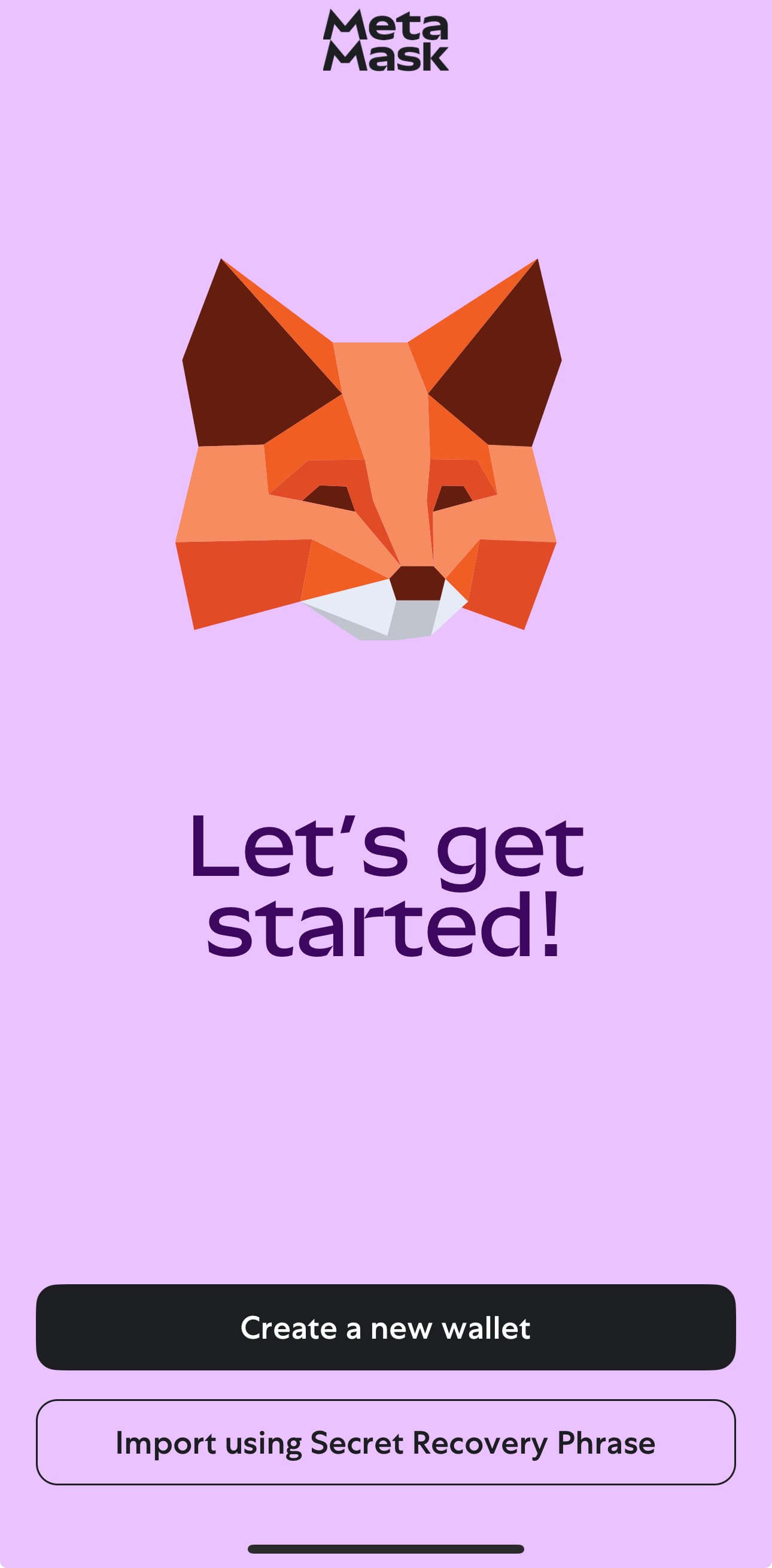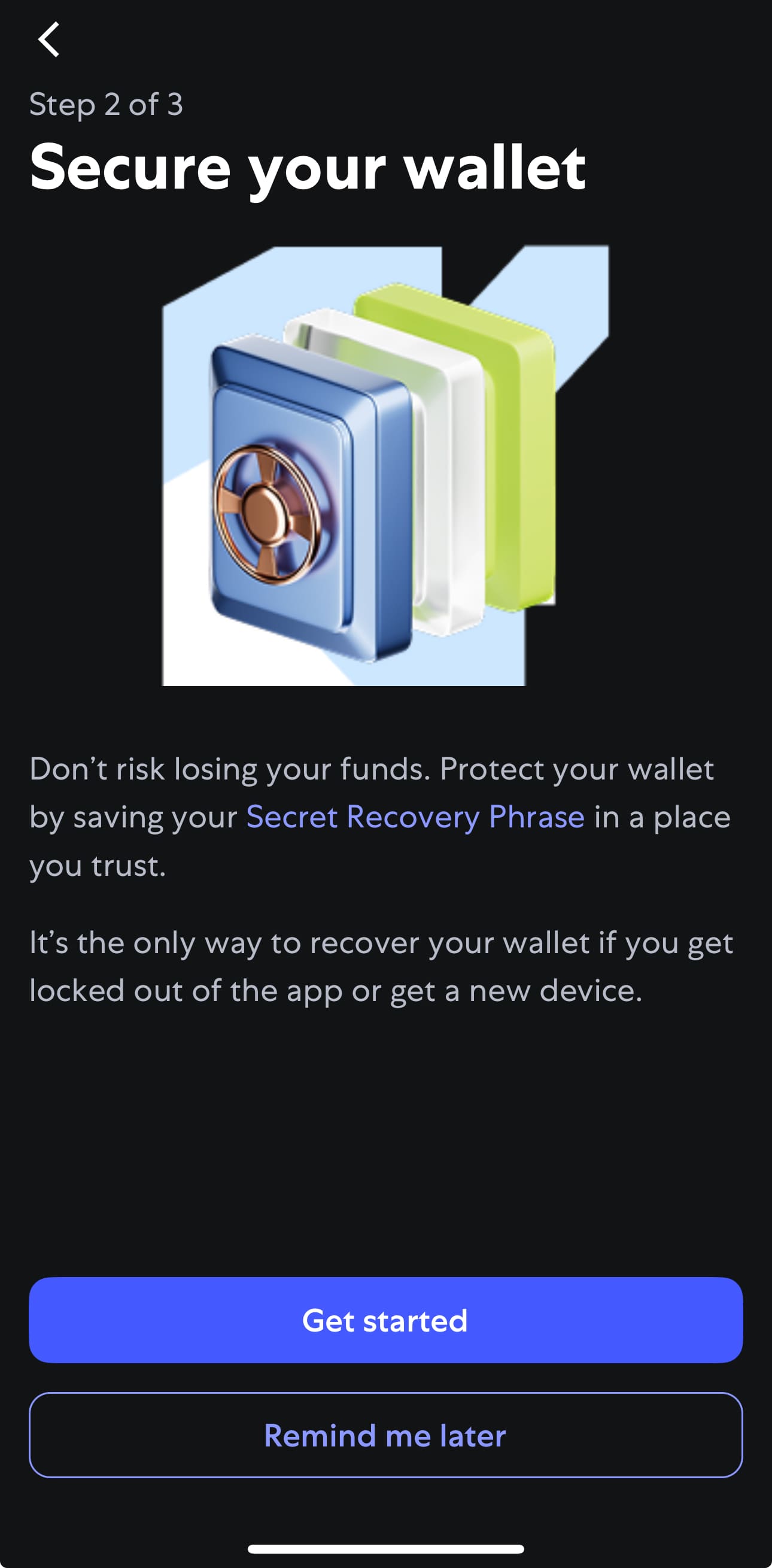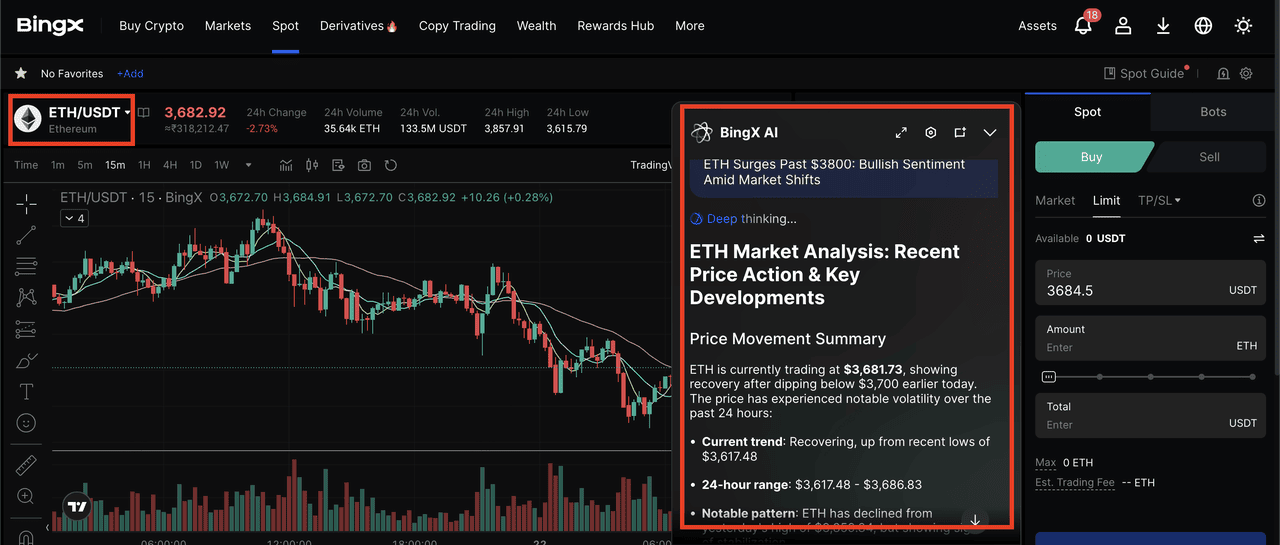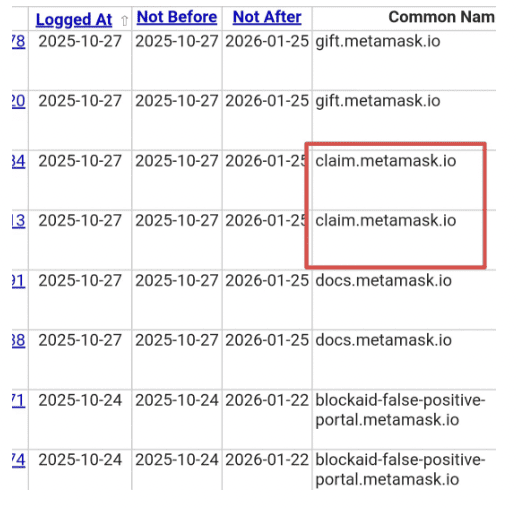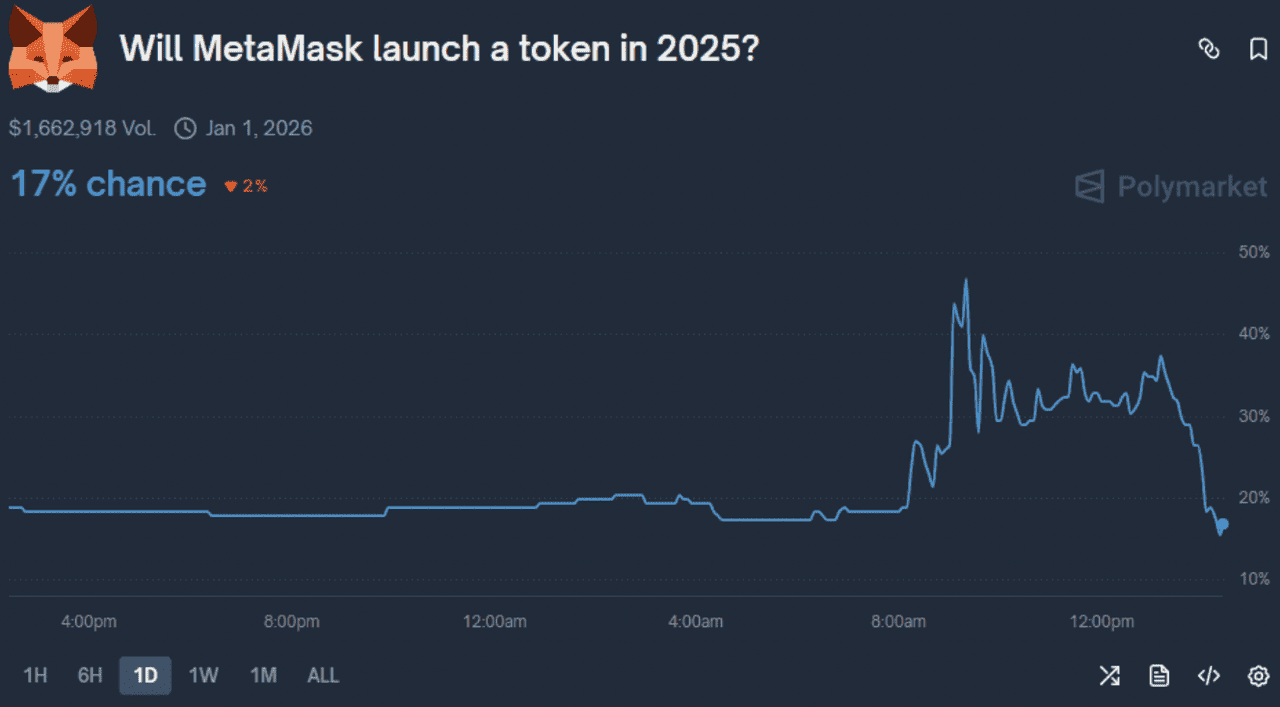Looking for a secure and seamless way to explore crypto, DeFi, and Web3? MetaMask has become the go-to wallet for over 100 million users worldwide, offering a gateway to decentralized finance and blockchain applications. Backed by Consensys, MetaMask supports over 17,000 dApps and allows you to manage Ethereum-based assets, trade NFTs, and interact with DeFi protocols, all from your browser or mobile device. Whether you’re an experienced crypto trader or a Web3 newcomer, MetaMask’s user-friendly interface and cutting-edge features like MetaMask Missions, Snaps, and Embedded Wallets make it a powerful tool for navigating the decentralized ecosystem.
MetaMask's monthly active users (MAUs) | Source: Token Terminal
What Is MetaMask Web3 Wallet?
Source: https://metamask.io/
MetaMask is a non-custodial, multichain cryptocurrency
Web3 wallet available as a browser extension and a mobile app. Originally launched in 2016 by ConsenSys, it began as a way to interface with the Ethereum blockchain but has since expanded to support other Ethereum Virtual Machine (EVM)-compatible networks like Avalanche, Polygon, Optimism, and Arbitrum.
Unlike many online wallets, MetaMask prioritizes your privacy and security, keeping no user-identifiable information. Your keys and
secret phrases remain entirely under your control, not even MetaMask or ConsenSys can access them. The MetaMask user base reflects a diverse, global audience, driven by the desire for financial autonomy and asset management outside traditional banks.
Key Features of MetaMask
Source: https://metamask.io/
MetaMask is a widely adopted cryptocurrency wallet that enables secure management of digital assets, seamless interaction with decentralized applications (dApps), and connectivity to multiple blockchains through an intuitive interface. Users can store, send, receive, and swap a variety of cryptocurrencies and tokens, with the option to purchase crypto using fiat currencies directly within the wallet.
It features an integrated dApp browser, supports hardware wallets for enhanced security, and offers robust tools for token and transaction management. MetaMask also includes staking capabilities, customizable gas fees, and user-friendly dashboards, making it a powerful platform for exploring
DeFi, NFTs, and cross-chain activities across the Web3 ecosystem.
How to Install and Use MetaMask: A Quick Guide
Follow these step-by-step tutorials to quickly create and set up your MetaMask wallet on desktop and mobile.
Browser Extension On Desktop
Step 1: Visit the official website (
metamask.io), click "Download," then select your browser. Supported browsers include Chrome, Firefox, Edge, and Brave.
Step 2: Install the extension from your chosen browser's store and follow prompts to set up your wallet, including creating a secure password and backup phrase. For example if you're on Chrome browser, Click "Add to Chrome"and on the pop up, click "Add extension".
Step 3: After adding MetaMask Extension, MetaMask will automatically open. Set up your secret backup phrase which is the only way to recover your MetaMask wallet if you forget your password, lose access to your device, or want to log in from another device. To complete the setup, confirm the phrase in the exact order provided, then click "All Done" to finish. You can also make sure it's easily accessible in your toolbar by clicking the jigsaw icon in the top-right of the screen, and hitting the pin icon. Pin MetaMask for easy access from your browser toolbar.
Step 4: Buy crypto on
BingX spot market and transfer the funds to your MetaMask wallet to begin trading and swapping on MetaMask.
How to Set Up MetaMask on Your Mobile
Step 1: Download the MetaMask app from the App Store or Google Play. For iOS users, the MetaMask mobile app can be downloaded
here and for Android users, the mobile app can be downloaded
here.
Step 2: Create a new wallet, create a new password, and set up your recovery phrase
Step 3: Buy crypto on
BingX spot market and transfer the funds to your MetaMask wallet to begin trading and swapping crypto on MetaMask
How to Fund Your MetaMask Wallet
Getting started with MetaMask is easy, and funding your wallet through BingX makes it even smoother. BingX allows you to buy popular cryptocurrencies like
ETH,
USDT, and
POL directly on its spot market, which you can then send to your MetaMask wallet to start using DeFi apps, trading NFTs, or exploring Web3.
Buy Ethereum on BingX spot market, powered by BingX AI's automated market analysis
Once you’ve purchased your crypto on BingX, you can send it to your MetaMask wallet in minutes. Just copy your MetaMask wallet address and paste it into BingX’s withdrawal page. After confirming the transaction, your funds will appear in MetaMask, ready for use in the decentralized world.
BingX is a great choice because it offers low trading and transfer fees, deep liquidity for seamless transactions, and real-time prices on major tokens. With
BingX AI providing smart market insights, plus a beginner-friendly interface and advanced security, it’s easy and safe to buy crypto and transfer funds to MetaMask.
With BingX, you’re set up for a fast, secure, and affordable Web3 onboarding experience.
Other Ways to Add Funds to Your MetaMask Wallet
You can fund your MetaMask wallet not only by transferring crypto from centralized exchanges like BingX, but also by buying crypto directly within MetaMask using integrated providers or swapping tokens via decentralized exchanges (DEXs) like Uniswap. These options offer flexibility, but fees, slippage, and network conditions may vary.
Top Tips to Secure Your MetaMask Wallet
Setting up MetaMask is just the first step. Keeping your wallet secure is critical to protect your funds and personal data. MetaMask provides several built-in privacy and security features to help you stay safe in the Web3 world. Here’s how you can secure your MetaMask wallet:
• Safeguard Your Secret Recovery Phrase (SRP): This is your wallet’s master key. Write it down on paper or store it in a secure offline location like a hardware password manager. Never share it online or with anyone. MetaMask will never ask for it. If someone gains access to your SRP, they can steal all your assets.
• Enable Phishing Detection: MetaMask includes a phishing detection feature that warns you about known malicious websites. Keep this turned on to avoid fake dApps and scam sites.
• Check and Manage Extension Permissions: MetaMask injects a Web3 component into websites to let you connect to dApps. This does not collect your browser history or personal data, but you should review and limit the permissions you grant to dApps when connecting. Only approve trusted sites.
• Use Hardware Wallets for Extra Security: For large amounts of crypto, consider integrating MetaMask with a hardware wallet like Ledger or Trezor. This adds another layer of protection by keeping your
private keys offline.
• Stay Updated: Always use the latest version of MetaMask. Updates often include critical security patches.
• Be Wary of Custom RPC Providers: MetaMask allows you to connect to custom networks through Remote Procedure Call (RPC) endpoints. Only use RPC URLs from trusted sources, as malicious providers could potentially track your activity.
MetaMask Stirs $MASK Airdrop Rumors With Strategic Domain Registrations
MetaMask has sparked widespread speculation regarding a potential
$MASK token airdrop following the registration of "claim.metamask.io" and "gift.metamask.io" domains on October 27, 2025. These domains currently redirect visitors to the company's homepage. The development prompted a sharp increase in Polymarket odds for a 2025 $MASK token launch rising from 11% a week earlier to over 40% before stabilizing at 17%.
Discussions across crypto forums and social media platforms have intensified with Nansen senior research analyst Jake Kennis stating that the airdrop is just "a matter of time" for MetaMask's 30 million users, potentially marking one of the largest distributions in the crypto sector through governance features, rewards for historical activity and broader implications for competitors such as Phantom and Rabby. This is in particular to ConsenSys's recent successes with the Linea token generation event and other initiatives.
Source: Odds of MASK Launching in 2025: Polymarket
Holonym growth and product lead Daniel Brunsdon describes the timing of registering these domains as a strategic response to emerging wallet competitors emphasizing integrated user experiences, enhanced security, and compliance capabilities, positioning $MASK to strengthen community engagement. The token launch in the future will facilitate a shift toward Wallet-as-a-Protocol frameworks incorporating two-party computation models and advance wallets as comprehensive infrastructure solutions. This recent activity builds on speculation initiated by ConsenSys founder Joseph Lubin's 2021 tweet asking "Wen $MASK?" and his August 2025 confirmation that development of the token is underway and may progress faster than expected.
Conclusion
MetaMask's web3 wallet is your gateway to the decentralized internet. It empowers you to manage your crypto assets securely, maintain your privacy, and interact with a growing ecosystem of dApps across multiple blockchain networks. With simple installation on browsers and mobile devices and a global user base exceeding 100 million, MetaMask has become a trusted choice for Web3 enthusiasts. Whether you’re minting NFTs, exploring DeFi platforms, or storing tokens, it offers the tools to get started.
With platforms like BingX making it easier to buy and transfer crypto, starting your Web3 journey is more accessible than ever. However, remember that using crypto wallets and interacting with decentralized applications involves risks, including potential loss of funds due to user error, phishing attacks, or smart contract vulnerabilities. Always follow best security practices and do your own research before making transactions.
Related Reading


